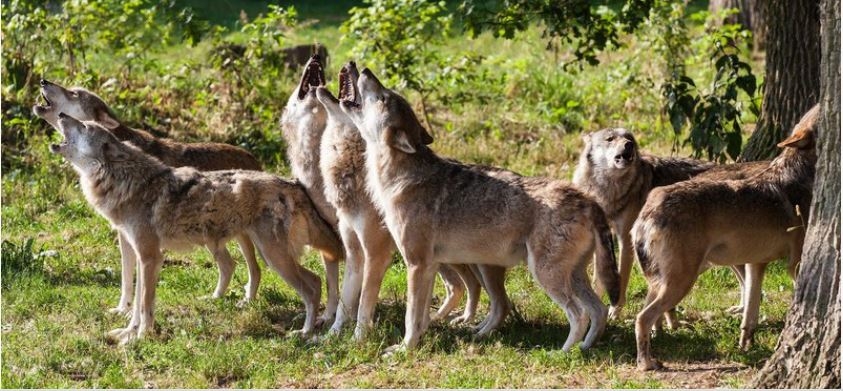Prime Minister Marjan Šarec hosted a meeting at which stakeholders discussed measures against wolf attacks on farm animals, agreeing that another meeting will be held in September to talk about the necessary changes in the system of management of large carnivores in Slovenia.
The meeting, which also featured Agriculture, Forestry and Food Minister Aleksandra Pivec on the government side, was attended by representatives of the Forest Service, Hunters’ Association and Trade Union of Farmers.
Pivec told the press after the meeting that the chronology had been reviewed of the entire developments related to large carnivores, which had spread to areas where they had never been seen before, resulting in damage to crops and attacks on livestock.
The minister pointed to the emergency law which serves as legal basis for the culling of 175 brown bears (another 25 are expected to be killed due to other reasons) and eleven wolves. Hunters have so far killed around 80 bears and no wolves, whose culling requires special conditions.
Pivec noted that the trade union demanded changes in the system of management of large carnivores, adding that certain changes had already been made in the sense of easier culling and expansion of the area where the measure was to be implemented.
Permits for the culling of seven wolves in problematic areas have already been issued, and another two are pending approval of the Environment Agency which the minister believes will happen soon, perhaps even today.
According to Pivec, one of the necessary measures is to define the number of brown bears and wolves in the wild which would be acceptable from the environmental and social aspects, and to put it into an official document, perhaps as part of changes to the nature conservation act.
“All stakeholders in the system must reach a consensus. And when numbers and the management system, which must be free from bureaucratic obstacles and difficult procedures, are defined, I’m convinced that then all sides will be satisfied.”
Trade Union of Farmers president Anton Medved assessed that progress had been made in talks, adding that they had proposed that a hotline was introduced so that farmers could report damage after attacks and that immediate measures could be taken.
“We also insisted that damage is recognised and compensated for within 30 days,” he said, adding that the trade union also insisted on a regulation stipulating that if damage was discovered in the morning, culling was carried out on the same day.
They also want the emergency law to be simplified so as to treat wolves like bears. “A wolf is a very mobile animal. We currently need ten days to get a decision [on the culling], and the wolf goes somewhere else in the meantime and it is hard to catch it.”
According to Medved, if the planned number of wolves is not culled in two months, the trade union will apply additional pressure. These demands will also be discussed at the meeting in September.
Asked whether they would continue to request resignation of Environment Minister Simon Zajc, he said this depended on the progress of talks and actions. He added that more about the protest in Gornja Radgona, announced for Saturday, would be known on Wednesday.
There are an estimated 1,000-1,200 brown bears and 80 wolves in Slovenia, with Pivec assessing that the optimal number of brown bears would be 450, while there were no estimates for wolves.
Medved meanwhile assessed that the sustainable number for Slovenia was 300 brown bears and three packs of wolves.

